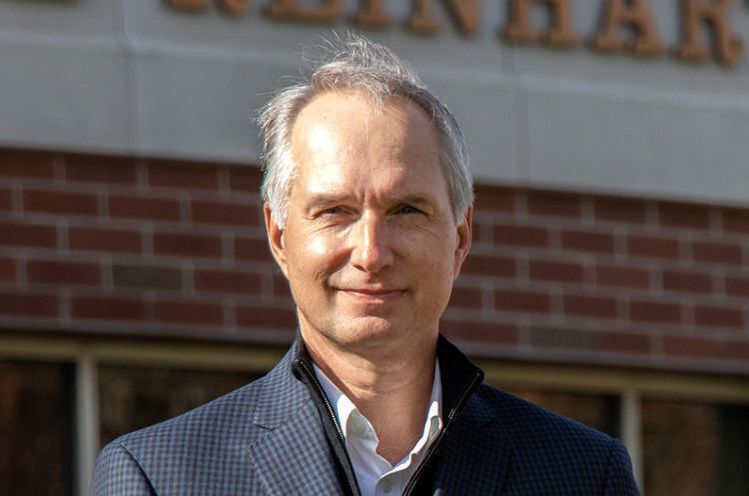Richard Kyte: Here’s why policy matters less than we think
For decades, America was looked upon as a nation to emulate. Now we look like a country comprised of the Hatfields and McCoys.
To outsiders, it doesn’t matter who started the feud, or who has the greatest claim to just grievance. What matters is that we won’t stop feuding.
We carry on our political debates as if the only thing that matters is policy, and in the name of improving our nation through better policy, we excuse the worst lapses of moral character, sacrifice friendships and destroy institutions. It is an approach to politics that gets everything backward.
The policies that divide the parties are not first in importance; they are last. When it comes to a just, flourishing society, good character comes first; trusting relationships come second; strong institutions come third; and policy comes last.
That is not to say policy doesn’t matter; it is just to say that policy is a means to an end. No policy gets effectively implemented without goodwill, trust and competence.
We know all this based on numerous studies of social capital. Communities with a high degree of social capital have people who are more likely to participate, share ideas and work toward the common good than those in communities with low social capital. People in such communities also report that they trust each another and the institutions upon which they depend.
Why is this important? Because communities with a high degree of social capital also have much better outcomes on virtually every measure: education, health, child welfare, socioeconomic mobility and safety.
So, one would think that a chief aim of political and community leaders would be raising social capital. After all, why do we keep spending more money on schools, hospitals, law enforcement and social services if we can obtain those ends just by getting citizens to trust one another more?
Unfortunately, it’s not that simple. First, it is hard to see the causal connection between something like trust — an abstract concept that’s difficult to define and measure — and an outcome like health, which can be defined and measured with relative ease. Second, trust does not work by replacing investments in social outcomes; instead, it works by enhancing those investments.
Communities with high levels of trust are comprised of people who enjoy working together and know how to do it. Communities with low levels of trust have people who undermine one another or who refuse to collaborate because they are pursuing their own interests. They believe defeating their opponents is more important than achieving their shared goals.
Several years ago, I was asked to serve on a local council tasked with reducing the jail population. The jail was over capacity, and the county board did not want to approve an addition to a structure that had just been completed a few years before. The council was comprised of some citizen representatives, some county board members and several criminal justice professionals, including judges, attorneys and law enforcement officers. Even though nobody was formally affiliated with a political party, those with conservative leanings would sit on one side of the table and those with liberal leanings on the other. When anybody from one side proposed a strategy, the other side would oppose it. We met at 7 a.m. every two weeks for six months and accomplished nothing at all.
Then somebody had the brilliant idea of bringing coffee and doughnuts to the meeting. Instead of everybody walking straight over to their usual seat at the table, folks would gather around the doughnuts and end up talking to whoever happened to be standing next to them. They would have conversations about how their children or grandchildren were doing in school, where they had traveled over the summer, how their gardens were growing. Sometimes they would wander over to a couple of open seats and continue their conversation.
After a few weeks I noticed during the meeting that right- and left-leaning council members were scattered randomly around the table, and because it was no longer quite as evident whether proposals were coming from the “right” side or the “wrong” side, they were listening to each other a little bit more. Over the following months we began to make slow but steady progress, reducing the jail population by improving the intake process, reducing courthouse delays and eliminating ineffective programs. Neither side won the debate; instead, we got rid of the sides and just started to focus on fixing the problem.
What happens when we get into oppositional attitudes is that we exaggerate policy differences in order to define ourselves and our opponents. We stop looking at evidence and focus instead on defending our position, which ends up driving people to support extreme solutions that are unlikely to work. We assume that anyone who supports a different policy disagrees with our goals.
The truth is, most people share similar goals. We all want prosperity, health and security — and we know less than we think about how to obtain them. We need to listen to one another, carefully evaluating what may or may not work, and then give different policies a try, seeing whether they turn out the way we expect. Policies are just tools, and tools are only as effective as the people who use them.
If we focus on character, relationships and institutions first, then we will be more creative and effective when it comes to implementing policies that make us all better off. After all, politics is not rocket science. It’s harder than that. It’s a matter of building a society that allows for human flourishing, and that’s something we can only do together.

